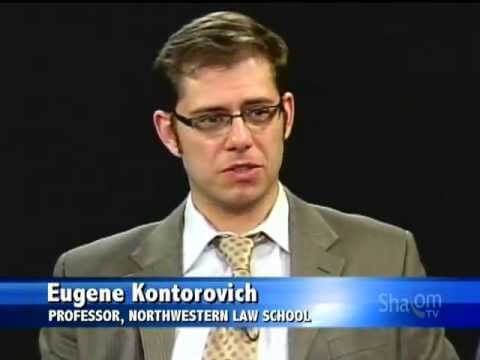 The biggest BDS fail this week was undoubtedly the desperate, inconsistent, and ultimately self-defeating series of statements and clarifications from the American Studies Association (ASA) to accusations that its academic boycott against Israel is a form of discrimination.
The biggest BDS fail this week was undoubtedly the desperate, inconsistent, and ultimately self-defeating series of statements and clarifications from the American Studies Association (ASA) to accusations that its academic boycott against Israel is a form of discrimination.
The group is preparing for its annual conference in November, and its policy towards Israeli scholars seeking to attend the conference came under attack. By the end of the week, it was no longer clear where the group really stood in regard to the boycott, and who exactly was the target.
And the biggest reason for the ASA’s confused response was the series of posts from Volokh Conspiracy blogger Eugene Kontorovich, a professor at Northwestern University School of Law. The blog is hosted by the Washington Post website, which brought the issue into the mainstream.
In the process, Kontorovich gave a master class on how to turn the tables on the BDS, keeping the pressure on the boycotters to reveal the lack of substance at the core of their activity, earning the title of BDS Buster of the Week.
Kontorovich did not launch the initial accusations that set off the flurry of activity – that honor belongs to the American Center for Law and Justice – but his series of commentaries generated widespread discussion of the issue, most of which focused to some degree on negative aspects of the academic boycott. In the first of three posts, Kontorovich noted that the ASA’s claim that the boycott was not directed at individual Israelis but only Israeli institutions and their representatives would do little to protect the group from claims of discrimination:
The ASA’s argument that it does not bar Israelis, but only Israelis who attend as representatives of their academic institutions, will not likely help them much, as the normal way for academics to attend academic conferences is as representatives of their institutions. In any case, this argument amounts to saying the ASA is not discriminating as much as they could have, which is not an advisable defense in discrimination cases.
That article set off the first frantic defense from the ASA’s executive director, John Stephens, who claimed, contrary to information on the group’s website, that any Israeli, even a representative of an Israeli institution, would be welcome at the conference. [sc:graybox ]Join the Fighting BDS Facebook page and stand up against the assault on Israel’s legitimacy. Kontorovich however, stood his ground:
Stephens tried to mislead me about the ASA’s policy, and is likely trying to mislead the Westin. The clear policy is to restrict participation by Israeli scholars in a way that no other nationality is subject to.
When the ASA insisted that Israeli scholars would indeed be permitted to join the conference, Kontorovich noted that the position was a reversal of its original position:
What is clear is that the ASA decided, in a widely-publicized move, to discriminate against some Israeli academics. Now, the ASA says it will not discriminate against any Israeli academics. The Conference is open to “everyone,” the group says, even, as the ASA’s executive director explained to me, “representatives of Israeli institutions.”
Finally, the ASA issued a press release insisting that the academic boycott was still in effect. But if everyone, including representatives of Israeli institutions, are welcome to join the ASA conference, it’s clear that the boycott is another symbolic gesture. And according to Kontorovich, one that harms the BDS movement more than it helps it:
If the ASA’s original action was important for popularizing such boycotts (at least in the narrow quarters of area studies), its reversal is equally important for showing them to be beyond the pale. It will be extremely hard for other academic groups to now put a good face on adopting a boycott that the ASA has done so much to distance itself from.

